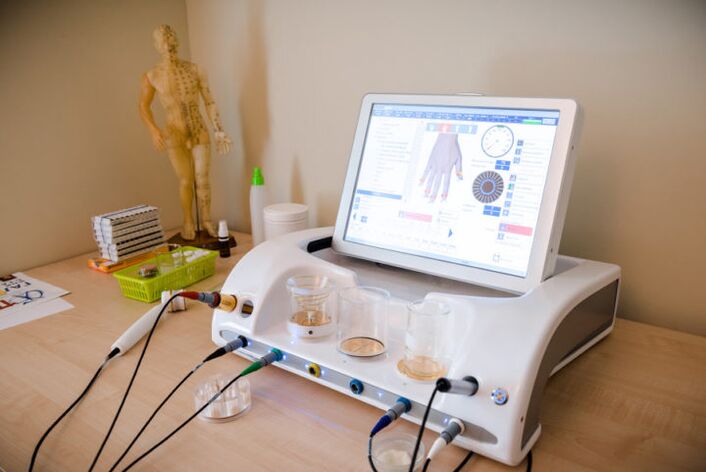Signs of internal parasites
How do you know if there are parasites in your body? You need to listen carefully to your body and the processes happening in it. In the initial stage of parasite invasion, the symptoms may not be obvious enough, but a healthy person will notice the pathological phenomenon and remain vigilant:
- Allergic reaction. Allergy is one of the signs of parasite attack on the human body. In order to deal with the adverse effects of parasites, the human body begins to produce more eosinophils-protective cells. They can cause allergic reactions. In turn, these parasites release immunoglobulin E into the blood of their host, thereby exacerbating allergies. The most effective parasite is the worm allergen, which causes reactions in the human body (skin rash), digestive tract, lungs and conjunctiva.
- Gastrointestinal discomfort. Parasites located in the small intestine trigger an inflammatory process therein, with the result that the normal function of the intestine is destroyed. Nutrient absorption is worse, undigested fat enters the rectum, and a person experiences cramps, diarrhea and constipation alternate. In addition, patients experience pain in the upper abdominal area, left or right lower cartilage, nausea and heartburn. Loss of appetite and weight loss. If the biliary organs and the digestive tract are dysfunctional, acne and pigmentation may appear on the skin, the skin becomes dry and loose, and the complexion becomes darker.
- Certain worms can block the bile duct due to their size or number. As a result, the generalbile duct is blockedand the outflow of human bile deteriorates or stops. This is manifested as obstructive jaundice. Since toxic substances are mainly excreted through the skin, gallbladder or liver problems can affect skin conditions. Age spots, acne appear, and the complexion becomes jaundice.
- Fecal disordersmanifested as diarrhea and constipation. Constipation occurs when the intestinal cavity is blocked by parasites. As for diarrhea, it is caused by substances similar to prostaglandins, which cause a lack of chloride and sodium in the body.
- Due to prolonged diarrhea, the body loses moisture, leading tomalnutrition.
- Parasites consume the immune system greatly, the amount of immunoglobulin A produced is reduced, and the human body is susceptible to viruses and infectious diseases.
- Because parasites migrate in the body, they can settle anywhere, including muscles and joint fluid. Because of its intervention in muscles and joints, the inflammation process can cause pain. Therefore, a person has joint pain and muscle pain.
- As worms interfere with the absorption and absorption of nutrients, people suffer from nutritional deficiencies and decreased blood sugar levels, resulting in weight loss. Disease-causing organisms absorb the minerals and trace elements needed by the human body, soanemia and premature aging.
- In some cases, a large accumulation of worm infections can trigger tumor processes in the host, when the parasites are located in specific organs (such as lung, liver, pancreas, etc. )

Careful people will definitely notice the symptoms described. He must be checked himself for parasites or see a doctor so that he can send him for diagnosis.
Diagnostic measures
A variety of diagnostic programs can be used to determine whether there are parasites in the human body. These diagnostic programs can not only detect the presence of parasites with high accuracy, but also determine their type, number, location and harm to human health.
Until recently, only stool analysis was used to determine the presence of parasites. Although this is the simplest research method, its accuracy is not very high. The fact is that the parasite does not lay eggs every day, so it is impossible to guess the exact time. Therefore, in order to make an accurate diagnosis, you need to donate 10 feces within a month. This is not very convenient for people who work and study. But now there are more advanced diagnostic methods:
The fact is that the parasite does not lay eggs every day, so it is impossible to guess the exact time. Therefore, in order to make an accurate diagnosis, you need to donate 10 feces within a month. This is not very convenient for people who work and study. But now there are more advanced diagnostic methods:
- X-ray, endoscopy and endoscopyDetect parasites in internal organs (lungs, bile, liver, etc. ).
- PCR (polymerase chain reaction). Using samples obtained in the form of saliva, secretions or blood samples, the DNA of the parasite can be determined. If a blood test shows the presence of a parasite, a PCR test can determine whether the parasite is one type or another.
- ELISA (enzyme-linked immunosorbent assay). It detects antigens and immunoglobulins. The accuracy of this diagnosis is 90%, and the type, number and overall dynamics of parasites can be tracked.
- Bioresonance diagnosis. The patient's body is affected by electromagnetic vibrations, although the existence of pathogenic organisms can only be checked, but its type cannot be determined.
Conclusion and conclusion
If you suspect that you have parasites, or just want to check this score, you need to consult a doctor-parasitologist or infectious disease specialist, he will tell you how to perform the check; if the result is positive, the rules are correctTreatment methods. Strongly opposed to self-treatment. First of all, antiparasitic drugs have great contraindications because of their high toxicity. Therefore, it can only be taken after a doctor's prescription. Only a doctor can choose the right dose to destroy the parasites and minimize the harm to the human body.
Secondly, some parasites must be removed from the body under the supervision of a doctor. When the drug acts on the parasite, it will die, but before that, it will release toxins into the blood of the host, which may cause anaphylactic shock.
Third, the use of traditional medicines on parasites is ineffective. They are only used as a preventive measure, or in cases where an infection has just occurred and the larvae are still young, in all other cases, use pumpkin seeds, walnut kernels, wormwood, and so on.

























